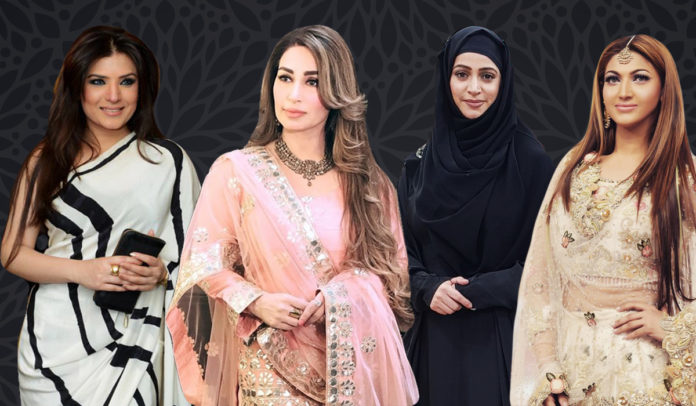Reema created a few ripples across the industry in a recent interview to Samaa TV. She spilled the beans on some of the open and not-so-open secrets of the industry of her time and commented on the rampant negative attitudes, leg-pulling, and even attempts on life for the sake of jealousies in those days.
According to Reema, there were a few colleagues in her days who would continually malign her character and would never even hesitate to make attempts at her life.
Poison and Bounties
“Once, someone fired gunshots at my house, and this other time, a colleague even tried to poison me when I was doing a shampoo commercial for Asim Raza,” said the Bulandi Star.
She added that “the culprit was paid a hundred thousand rupees to poison me but never succeeded.” The concerned person later apologized, and Reema never reported this incident to the police. “She told me that she felt jealous when people praised me in front of her.” Reema further revealed.
A Common Practice in those Days
The culture which Reema discussed should not come as a surprise to readers as 90s was an era where the Lahore based cinema business was on its deathbed. With the number of films and cinemas declining every year, space was shrinking, and the actors would struggle to find acting jobs.
The fierce competition among actors; mostly leading ladies, would not only lead to cold wars and occasional confrontations but also some even exploiting their political and social influence against each other.
There were innumerable incidents where directors and producers would complain about heroines giving more attention to their “extracurricular activities” than their films. In the late 90s, the leading ladies would sign a movie merely on the number of songs being picturized on them rather than the strength of their roles.
The omnipresent chaos ultimately led to the inevitable demise of beloved Lollywood, that used to churn out 250 films a year in its golden era (the 60s).
Reema, in the same interview, also revealed that the jealousy between the colleagues would lead to them using their sources to spread rumours or even having her scenes cut from the final film.
The Colleagues Respond
Keen to know what Reema’s contemporaries thought of the allegations, we contacted various leading ladies of her era. Resham, a key competitor of Reema with hits like Jeeva, Sangam, and Ghunghat responded by saying, “it’s all in the past, why bring it up now?
Also, if Reema has anything to say, she should reveal the names.”
Resham further added, “we are actors not serial killers and when you forgive somebody, why bring it up back again in media? The crux of her allegations is that she [Reema] is the best and we are all evil.”
Sana, another clear opponent of Reema who starred in films like Ye Dil Apka Hua and Sangam, had a somewhat similar stance. She said, ”I respect Reema a lot, she is my senior. However, I feel these things should have been brought up when they were said. Now it feels a bit off.”
“Yeh batain unhain suit nahi karteen,” Sana went on. “I feel now at our age, we should not talk about such petty things. Our focus should instead be on collaborative work and moving forward. Since I’m busy with my own work these days, I am not aware of exactly what she said, but I feel we should move on from such stuff,” Sana responded.
Actress Noor Bukhari, who actually debuted with Shan Shahid’s acclaimed, Mujhe Chand Chahiye, in which Reema played the supporting role of a tomboy (on the lines of Kajol’s role in Kuch Kuch Huta Hai), had a more supporting point of view.
She said, ”I agree with Reema. People manipulated her during the interview, but it was her experience which she was sharing. We have all had similar experiences in the industry.”
Pointing to the stiff competition that the ladies shared in the small industry, Noor added that “it was a competitive place with jealousy and all. I feel she was just telling her story and did not accuse anyone.”
We tried contacting Meera as well, but since the actress is currently in Morocco, we could not get her comment on the story.
With Reema sharing her bad experiences from her time in the film industry, the new, revived face of Pakistani cinema takes lessons and fosters positivity instead of infighting.




